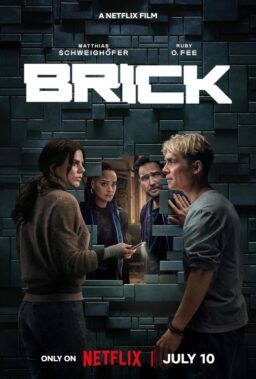I can think of three times when I cried while listening to the radio. The first was when the death of John F. Kennedy was announced. The other two were during the WFMT “Midnight Special” tributes to Steve Goodman and, last Saturday night, Fred Holstein. I know myself well enough to know on those last two occasions I was moved not only by their loss, but by my own.
Old Town and Lincoln Avenue in the 1960s and 1970s were where Chicago went to be young, to drink and sing all night, to live forever. We were a shifting population of people who knew one another, sometimes well, sometimes barely, and saw one another night after night in the same places. For me the anchor was O’Rourke’s Pub at 319 W. North, and no night was complete without touching base there. But many nights a crowd would gather and move down the street, maybe to the Old Town Ale House, maybe to the Quiet Knight, very often to the Earl of Old Town. Even later we might work our way up Lincoln to Sterch’s or Orphan’s or Oxford’s.
The Earl, across the street from Second City, was the holy ground of the Chicago folk music renaissance, and there I heard for the first time Steve Goodman and Fred Holstein — and Bonnie Koloc, Michael Smith, Jim Post, Bob Gibson, Ginny Clemons, and the remarkable string band Martin, Bogan and the Armstrongs. I was there after hours one night when Goodman sang a song he said he had just composed called “City of New Orleans,” and John Prine was there, too. John was a mailman in Maywood when he started singing at the Fifth Peg, on Armitage, and I knew from the moment I heard him how good he was. I wasn’t a music critic, but I wrote about him in the Sun-Times because after hearing him sing “Old Folks” and “Sam Stone,” how could I not?
Fred and his brothers Ed and Alan were everywhere during those years — Fred and Ed onstage, Alan working the room at the two clubs they co-owned, Somebody Else’s Troubles and Holstein’s. They had good taste and good friends, and on their stages I heard such wonders as Doc Watson and Queen Ida. Fred sometimes was the headliner, sometimes was the opening act, sometimes was on the road. The thing was, he loved to sing. Loved it. And his way with a song was like a lover’s caress.
On “The Midnight Special,” Rich Warren played Fred’s arrangement of “Mr. Bojangles,” and I felt as if nobody else had ever quite understood it. And his other signature songs: “The Streets of London” and “All the Good People.” And “Hush, Little Baby, Don’t You Cry.” Who else could have sung that one in a saloon at midnight? Warren played the songs from a recording he made at the Earl on June 29, 1969, and you could hear the glasses clinking in the background and waitresses shouting orders to Jimmy the cook, and then Fred’s voice would quiet the room, and you wouldn’t hear a thing except the music.
Those were wonderful days to be young and alive and in Chicago. I didn’t know Fred well, but let’s say I knew him frequently. We both drank, but I drank more than he did, because he usually had to sing until 2 a.m. One Saturday afternoon I was doing my laundry at the launderette across from Fred’s club, and while the clothes were in the dryer I went over there. The club was closed but Fred was inside, let me in, poured me a drink. I told him I was hung over, and we talked about drinking, which was a condition of life for the regulars on the Old Town and Lincoln Avenue circuit. What did we say? I don’t know; maybe we were trying to figure out the secret. Our hero was Jay Kovar, who ran O’Rourke’s and seemed to be able to drink all evening and be calm and wise and steady. What I remember from Fred was his sympathy. He was the kind of guy who always had time to talk, always had time to listen. So did Jay, for that matter. The Old Town and Lincoln Avenue scene wasn’t exactly based on retail; it was more like a nightly reunion of friends.
At the time of his death, Fred was bartending and singing at Sterch’s, one of the surviving bars from the golden age. Last summer in Grant Park I ran into proprietor Bob Smerch and his famous grin and his young daughter, and we talked a little about the old days, but so much went unsaid. We knew. We had been there. Some lasted longer than others. I bailed out in 1979. If I hadn’t, I’d be dead. But I won’t say it wasn’t a wonderful time.
When Rich Warren played “All the Good People” Saturday night, the lyrics by Ken Hicks sounded more poignant to me than they ever had before. He closed with them, and so will I:
This is a song for all the good travelers
Who passed through my life as they moved along.
The ramblers, the thinkers, the just-one-more drinkers
Each took the time to sing me a song.











